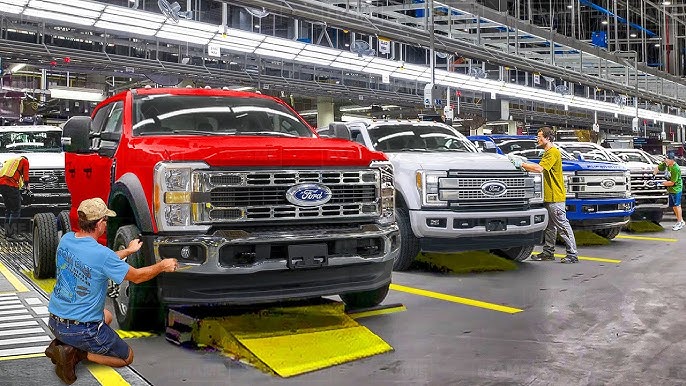
Ford Prioritizes Gas F-Series Production, Pauses F-150 Lightning Assembly After $2B Fire Loss
The latest strategic move by Ford Motor Company underscores the immediate financial pressures affecting the automotive industry’s transition to electric vehicles (EVs). Following a significant supply chain disruption, the automaker has placed its high-volume gas and hybrid trucks first. This critical prioritization decision results in a temporary Ford F-150 Lightning production pause at the Rouge Electric Vehicle Center (REVC) in Michigan.
Financial Contingency and Aluminum Supply Constraints
The assembly pause is a direct consequence of a fire at a critical aluminum supplier’s factory. The September 16 incident at Novelis’ plant in Oswego, New York, severely damaged its hot mill. Ford reported that this fire will cost the company up to $2 billion in earnings in the fourth quarter. Coupled with a $1 billion headwind from tariffs, this led Ford to reduce its full-year profit guidance for 2025 to **$6 billion** from $6.5 billion. The immediate strategy must mitigate these losses.
Prioritizing Volume Over EV Growth
Ford’s justification for the Ford F-150 Lightning production pause is rooted in profitability and material usage. The gas and hybrid F-Series trucks are significantly more profitable for the company. They also require less aluminum, a material suddenly constrained by the fire. The electric F-150 Lightning remains the best-selling electric pickup in the U.S. However, its sales are small compared to its conventional counterpart. In the third quarter, Ford delivered 207,732 F-Series trucks. In contrast, the company sold only 10,005 F-150 Lightning pickups.
The Strategic Deployment of Workforce and Capacity
To recover the fire-related losses, Ford developed a plan to increase overall F-Series production volume. The company will boost truck volume by more than 50,000 units in 2026. This increase requires adding a third shift at the Dearborn Truck Plant, creating up to 1,000 new jobs. Critically, all hourly employees at the REVC affected by the pause will be transferred to the Dearborn Truck Plant. A Ford spokesperson confirmed the company has “good inventories of the F-150 Lightning.” Novelis expects to restart its hot mill by December 2025.
In this context of financial shock and supply chain fragility, what is the long-term implication of prioritizing near-term profit over sustained EV assembly?
Explore Business Solutions from Uttkrist and our Partners’, Pipedrive CRM [2X the usual trial with no CC and no commitments] and more uttkrist.com/explore



